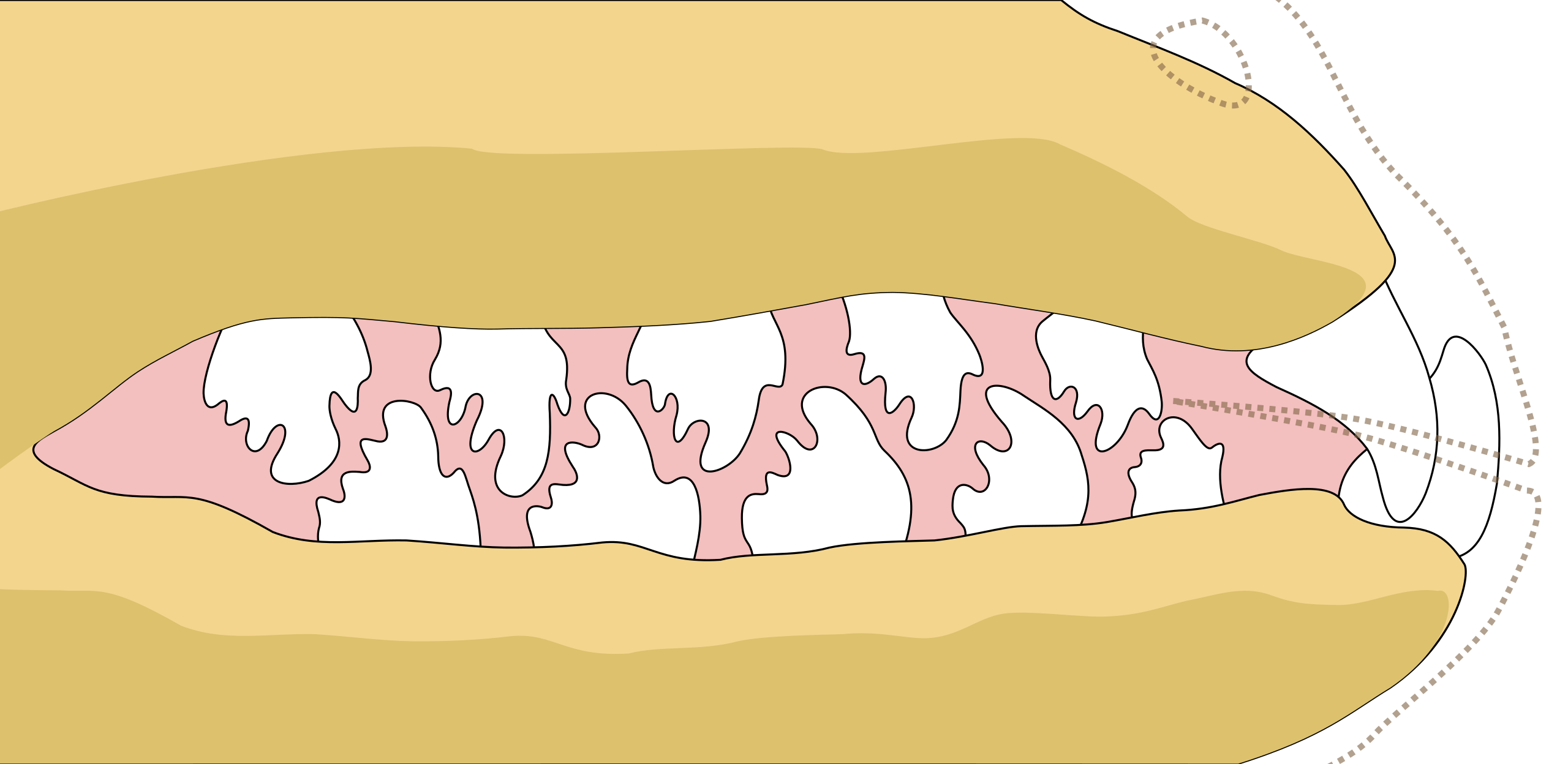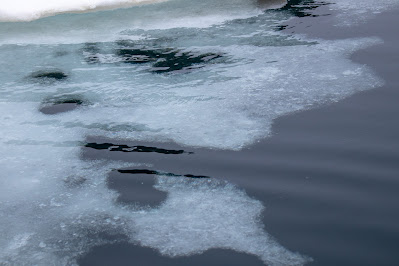Our amazing head chef is Ukrainian. The ship took a detour so he could deliver fresh fruits, vegetables and pastries to the men at the Ukrainian Vernadsky Research Base. Other nations are helping to support this station while Ukraine is at war.
While zodiacing around this gloomy island outpost we encountered large (very stinky!) Gentoo Penguin colonies, Kelp Gulls, South Polar Sukas, Rock Cormorants, Crabeater seals and, Weddell seals.

Foul smelling Gentoo penguins are everywhere around the base.
The Resolution is the hazy shadow at center left.
Gentoo Penguins"Gentoo penguins are easily recognized by the wide, white stripe extending like a bonnet across the top of its head and the bright orange bill. It has a pale whitish-pink webbed feet and a fairly long tail - the most prominent tail of all penguin species. Gentoo penguins can reach 20-35 inches tall making them the third-largest species of penguin after the empreor and king penguins. Males weigh 19 lbs. and females 18 lbs. Their weight drops to as little as 9.9 lbs when guarding the nest.They are th fastest underwater swimmers of all penguins, reaching speeds of up to 22 mph." ~Wikipedia
South Polar Suka
Gentoo song is referred to as "Trumpeting".
Weddell seals
Kelp Gull
Rock Cormorant
Crabeater seals"The Crabeater seal, also known as the krill-eater seal, has a circumpolar distribution around the coast of Antarctica. Their average length is 7.5 feet and their average weight is around 440 lbs. They are the most abundant seal species in the world with an estimated population of as many as 75 million individuals. This success is due to its specialized predation on the abundant Antarctic krill. Their mouth is uniquely adapted for filtering their small crustacean prey with a sieve-like tooth structure. Crabeater seals do not eat crabs." ~ Wikipedia

Antarctica artistic license




























.jpg)




